
Do you have what you need to make your garden grow?


Garden Center
Store Hours
Mon-Sat:
6:00am - 11:00pm
Sun:
7:00am - 8:00pm
Curbside:
09:00am - 6:00pm
Location
Popular at Your Garden Center
Spring Garden Supplies
Explore Popular Spring Plants
Garden Project Calculators
;Resize=(703,395.44))
Grass Seed Calculator
When you're ready to seed your lawn, our calculator helps you estimate the amount of grass seed you'll need to get the job done.
;Resize=(703,395.44))
Mulch Calculator
Enter your preferred material, the square footage and mulch depth of the coverage space for accurate results.
;Resize=(703,395.44))
Fencing Calculator
We'll calculate the amount of fencing you should purchase based on your property needs.
Shop Outdoor and Garden Brands
Frequently Asked Questions About Gardening
Which planting zone am I in?
Check the USDA zone map, as planting zones have shifted over the years. Zones with higher numbers can plant earlier in the year. Choose plants that are meant for your zone and increase your odds of successful gardening.
Is it ok to plant seeds outside in the spring?
If the soil isn't frozen or cold, consider planting your veggie, flower, or fruit seeds directly into your garden. This is called the "direct sow" method. Plant after the threat of frost is gone for the season, as seedlings and sprouts can't weather those conditions. You can also start your seeds indoors if you'd like. Consult your seed package for how and when to sow seeds.
How do I plant fruit seeds?
The best source of info is the seed packet your garden-to-be came in. It's key to successfully growing fruits, veggies, and spring flowers — indoors or outdoors. Requirements vary from one type of flower, fruit, or veggie plant to the next. Some seeds should only be planted indoors, and your seed packet will tell you that, too. You'll be a pro at planting seeds in no time.
Should I harden off my seedlings before planting them outside?
Yes, for best results, if you raised plants indoors from seeds in your own plant nursery, harden them first before you transplant them. Hardening allows your seedlings to adjust to the great outdoors, making them more resilient against cold snaps. It slows their growth until they're strong and ready to take off during a spring warm front.
Can I strengthen my seedlings before planting them outdoors?
Get your sprouts used to storms and breezy spring days with a fan and keep fungus from growing in damp conditions. Set up an oscillating floor fan on low to mimic the wind. Just the gentlest breeze for several hours a day will do the trick — no need to prep them for a hurricane. They'll gain strength even though you shouldn't see them moving. If you don't set up a fan, your seedlings may be more sensitive to strong winds. Try to plant between storms.
What are seed tapes?
If you're dealing with extremely tiny seeds or want more guidance in planting, consider seed tapes. They're biodegradable pieces of paper with tiny seeds affixed at regular intervals. Just bury the tape and water as directed. If all goes well, you'll have perfectly spaced sprouts pop up soon.
Garden Project Ideas
The Home Depot Garden Center at West Port St Lucie
Set Up For Springtime
On beautiful spring days, tidy the yard before everything blooms in earnest. Lawn care is often a priority as well. Don't forget to sweep the gazebo and clean out the shed in preparation for spring, too. No matter what outdoor projects you choose to tackle and which plants you need, search for your local plant nursery and find that The Home Depot Garden Center in West Port St Lucie can help you enjoy your spring activities to the fullest.
Plant Hardiness Zones Explained
The first thing to know when planting vegetables, spring flowers, and other seeds is your planting zone. Every location in the U.S. and its territories is sorted into blocks by climate. Find your zone on the USDA planting zone map and learn when to plant seeds.
For example, you could transplant bell peppers outdoors in mid-March in Zone 10, but not until the end of May in Zone 4. You'll have good results with plants that have your zone number or less. In other words, a Zone 5 garden can support plants listed as Zones 1–5. The timeframe to direct sow outdoors in your garden is often around a month later than the indoor start date. Read your seed packet for details. If you start plants a little later than recommended, it's not ideal, but it will even out as time passes.
Gardening in Your Growing Zone
Your climate is excellent for growing year-round if you've got rich soil. Why not think of springtime planting now? With such beautiful weather, you can direct sow many types of seeds. From classics like cucumbers and peppers to spinach and green beans, you have a wide variety of options. Last year's garden might still be growing if there was no reason to put it to bed — especially if it's close to the house or in a greenhouse. In that case, tend it as usual.
Some seeds, like tomatoes, do best when started indoors and aren't recommended as direct sows. Read your seed packets and adjust accordingly for your region. Although the warm temps are excellent for growing, check your soil to make sure it's rich enough and a good match to your plants. Miami limestone and sandy soil will need soil amendments to adjust the texture and pH for a successful garden if you're growing many garden plants. If you go with native plants like muscadines, persimmons, red mulberries, and blueberries, they're already adapted to the soil of southern Florida.
Plant Seeds Outside With Direct Sow
Planting seeds into your garden soil, or using the direct sow method, is an alternative option. There's less tending and planning than growing indoors. If you like to go with the flow, follow the instructions on your seed package and try it.
Prepare to deal with whatever hand nature deals you: You could have no germinating seeds. A critter could munch the tender seedlings for a snack. All the seeds you plant in each hole may sprout, so you'll need to choose the most robust sprouts to survive in a process called thinning. Garden pests or insects might make a meal out of your seedlings before they take off. But if you're lucky, you'll get strong sprouts that are ready to grow all spring.
Start Seeds Indoors
If you'd like more control over your seedlings' journey or you're eager to get growing, start your seeds indoors in your own plant nursery. In general, you can plant seeds indoors about a month before you can do it outside. Like direct sow, you push the seeds into the soil as directed on the seed packet, but that's where the similarities end.
You're responsible for giving them quality substitutes for rain and sun. Keep your seeds cozy with heating mats and grow lights, water them carefully with a spray bottle or watering can, then thin them as they germinate in groups of three. Give them a boost with a gently blowing fan as they lengthen into sprouts if you'd like. Harden them off to get them used to outdoor conditions, then transplant them into your garden when they're big enough.
Transplant Young Plants Into Their New Homes
Place your transplants in the ground, then water them well. Blanket the surrounding area with mulch, marking where the plant is with a stick so you can easily find it among the grass clippings, old leaves, or straw. Consider putting up chicken wire or other protective measures if rodents or deer visit your yard regularly, as your sprouts may otherwise become a snack.
Protect Your Garden With Mulch
Finish it all off with compost and mulch. Compost enriches the soil so your garden can grow even better. It may help foster stronger plants that bear more flowers and fruit. Mulch controls weeds and keeps your soil from drying out. Mulch and compost can be DIY creations, but you can also purchase them in-store. The next time you're looking for "mulch near me," stop by the Garden Center to get the right amount.
Greet the Spring
Don't miss a minute of growing season. Plan your garden and landscaping, prepare to fertilize your lawn, and browse The Home Depot nursery to find inspiration on which spring flowers to plant when the weather warms. For those without lawns, consider adding artificial grass, a pellet grill, or an outdoor rug to your balcony or patio. Shop for the soil, fertilizer, and seeds you need in the aisles of your West Port St Lucie Garden Center, online, or on our mobile app. Let's get growing together.
Nearby Stores
Find Another Store
2200 Sw Gatlin Boulevard
Port Saint Lucie, FL 34953
3.78 mi
Mon-Sat: 6:00am - 11:00pm
Sun: 7:00am - 8:00pm
5880 Okeechobee Rd
Fort Pierce, FL 34947
7.23 mi
Mon-Sat: 6:00am - 11:00pm
Sun: 7:00am - 8:00pm
3451 Nw Federal Hwy
Jensen Beach, FL 34957
8.94 mi
Mon-Sat: 6:00am - 10:00pm
Sun: 7:00am - 8:00pm
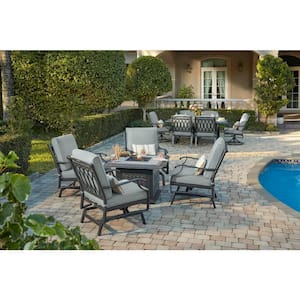
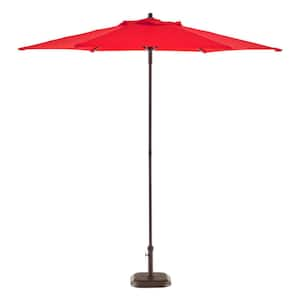
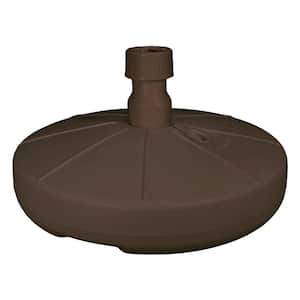
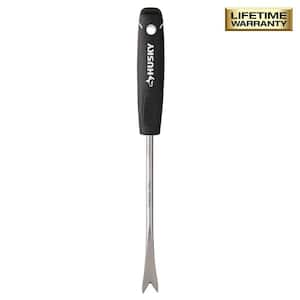
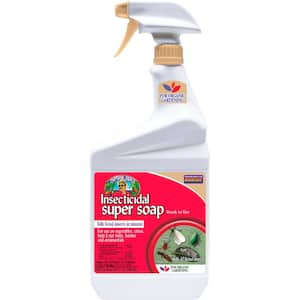
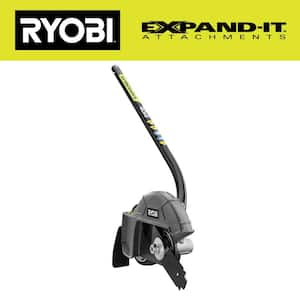
)
)
;Resize=(300,300))
)
)
/2023_P2_Rain_Barrels_Product%20Image%20(square).jpg?im=Resize=(300,300))
)
;Resize=(300,300))
)
;Resize=(300,300))
;Resize=(300,300))
;Resize=(300,300))
)
;Resize=(300,300))
/12_SOIL_B_0420_Social%20media%20(square).jpg?im=Resize=(300,300))
;Resize=(300,300))
;Resize=(300,300))
)
)
)
;Resize=(300,300))
;Resize=(300,300))
;Resize=(300,300))
;Resize=(300,300))
;Resize=(300,300))
)
;Resize=(300,300))
/18Patio_Camden_Seagrass_5pcSeating_Planters_302468736_DTL3_L_Social%20media%20(square).jpg?im=Resize=(300,300))
;Resize=(300,300))
;Resize=(300,300))
;Resize=(300,300))
;Resize=(300,300))
;Resize=(300,300))
)
)
)
.jpeg?im=Crop,rect=(363.69230769230774,1.2307692307692308,958.7692307692308,958.7692307692308);Resize=(300,300))
;Resize=(300,300))
;Resize=(300,300))
;Resize=(300,300))
)
)
;Resize=(300,300))
;Resize=(300,300))
;Resize=(300,300))
)
;Resize=(300,300))
)
)
)
)
;Resize=(300,300))
;Resize=(300,300))
)
;Resize=(300,300))
)
)
/Capello_Spring_Mum_10in_Social%20media%20(square).jpg?im=Resize=(300,300))
;Resize=(300,300))
)
)
;Resize=(300,300))
;Resize=(300,300))
)
)
)
)
)
;Resize=(300,300))
;Resize=(300,300))
;Resize=(300,300))











































